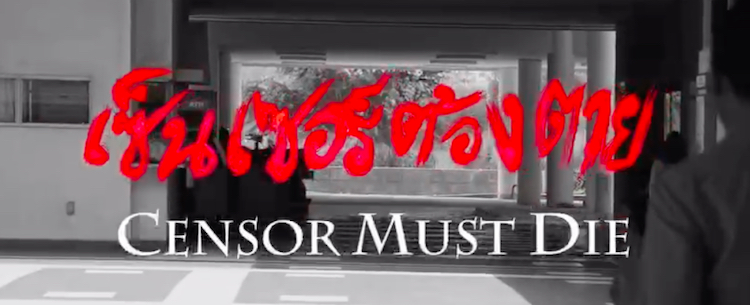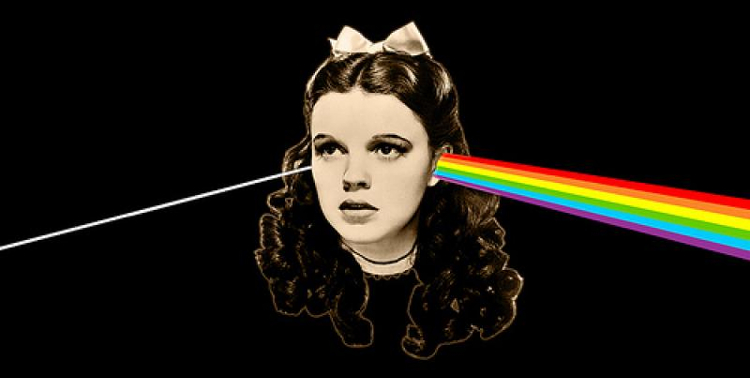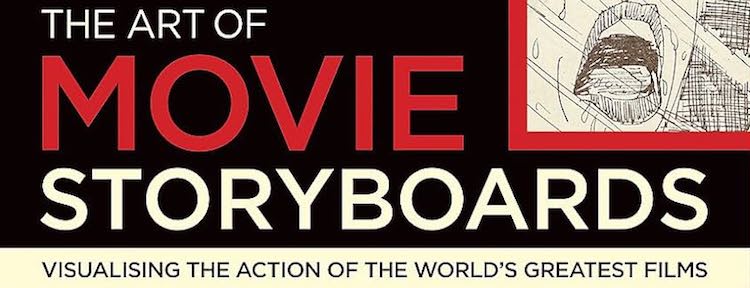The current issue of the Australian edition of Empire magazine is a special 500 Greatest Movies Of All Time! edition. The list is based on
The 500 Greatest Movies Of All Time (without the exclamation mark), published by Empire UK in November 2008. The UK list was compiled from votes from readers (
including me) and members of the film industry.
The Australian edition is introduced by editor Daniel Murphy as "a global poll", though he doesn't mention that the poll was actually conducted five years ago. Sixty-one films from the original 500 have been replaced: recent films have been added, along with some notable Australian films. Murphy writes, for example: "The Castle claiming top gong for an Australian film at number 72? That's one to make you smile", implying that The Castle was voted for by an international readership. In fact, The Castle didn't feature in the 2008 list, and was presumably added (with the other sixty films) by the magazine's Australian editorial team.
The 500 Greatest Movies Of All Time! are as follows:
1. The Godfather
2. Raiders Of The Lost Ark
3. Star Wars V: The Empire Strikes Back
4. The Shawshank Redemption
5. Jaws
6. GoodFellas
7. Apocalypse Now
8. Singin' In The Rain
9. Pulp Fiction
10. Fight Club
11. Raging Bull
12. The Apartment
13. Chinatown
14. Once Upon A Time In The West
15. The Dark Knight
16. 2001: A Space Odyssey
17. Taxi Driver
18. Casablanca
19. The Godfather II
20. Blade Runner
21. The Third Man
22. Star Wars IV: A New Hope
23. Back To The Future
24. The Lord Of The Rings I: The Fellowship Of The Ring
25. Toy Story III
26. The Good, The Bad, & The Ugly
27. The Avengers
28. Dr Strangelove
29. Some Like It Hot
30. Citizen Kane
31. Skyfall
32. Die Hard
33. Aliens
34. Gone With The Wind
35. Amour
36. Butch Cassidy & The Sundance Kid
37. Alien
38. The Lord Of The Rings III: The Return Of The King
39. Terminator II: Judgment Day
40. Andrei Rublev
41. A Clockwork Orange
42. Heat
43. The Matrix
44. Vertigo
45. The 400 Blows
46. Kind Hearts & Coronets
47. The Big Lebowski
48. Schindler's List
49. Psycho
50. ET: The Extra-Terrestrial
51. On The Waterfront
52. This Is Spinal Tap
53. Seven Samurai
54. Evil Dead II
55. 8½
56. The Shining
57. The Lord Of The Rings II: The Two Towers
58. La Dolce Vita
59. Casino Royale
60. Lawrence Of Arabia
61. His Girl Friday
62. Close Encounters Of The Third Kind
63. Come & See
64. Inception
65. The Usual Suspects
66. The Graduate
67. Sunset Boulevard
68. Oldboy
69. Tokyo Story
70. Edward Scissorhands
71. Harold & Maude
72. The Castle
73. Annie Hall
74. Three Colours: Red
75. Stand By Me
76. The Night Of The Hunter
77. 12 Angry Men
78. The Treasure Of The Sierra Madre
79. Eternal Sunshine Of The Spotless Mind
80. A Matter Of Life & Death
81. Manhattan
82. Spartacus
83. Rosemary's Baby
84. The Thin Red Line
85. The Life & Death Of Colonel Blimp
86. Batman Begins
87. The Great Escape
88. Brazil
89. Blue Velvet
90. LA Confidential
91. Carrie
92. Iron Man III
93. The King Of Comedy
94. Ferris Bueller's Day Off
95. Magnolia
96. When Harry Met Sally
97. Star Wars VI: Return Of The Jedi
98. Yojimbo
99. Once Upon A Time In America
100. Spirit Of The Beehive
101. American Beauty
102. The Wild Bunch
103. Reservoir Dogs
104. North By Northwest
105. Toy Story
106. Network
107. Raising Arizona
108. The Hustler
109. One Flew Over The Cuckoo's Nest
110. Rear Window
111. The Rules Of The Game
112. A Man For All Seasons
113. An American Werewolf In London
114. The King's Speech
115. Touch Of Evil
116. Before Sunset
117. Fitzcarraldo
118. I Am Cuba
119. Anchorman: The Legend Of Ron Burgundy
120. The Conversation
121. Blazing Saddles
122. Rio Bravo
123. Miller’s Crossing
124. Withnail & I
125. The Wages Of Fear
126. The Battle Of Algiers
127. Los Olvidados
128. The Princess Bride
129. A Woman Under The Influence
130. The Silence Of The Lambs
131. Breathless
132. Pat Garrett & Billy The Kid
133. The Sting
134. Lost In Translation
135. Harvey
136. The Man Who Would Be King
137. The Last Of The Mohicans
132. Pan's Labyrinth
138. Life Of Pi
139. Double Indemnity
140. Seven
141. Duck Soup
142. Amadeus
143. Dances With Wolves
144. Cool Hand Luke
145. Avatar
146. As Good As It Gets
147. Snow White & The Seven Dwarfs
148. The Dark Knight Rises
149. There Will Be Blood
150. Sophie's Choice
151. Shampoo
152. Cyrano de Bergerac
153. Notorious
154. Z
155. The Red Shoes
156. The French Connection
157. Boogie Nights
158. Gladiator
159. The Innocents
160. Betty Blue
161. Badlands
162. Saving Private Ryan
163. True Romance
164. Unforgiven
165. The Royal Tenenbaums
166. Being There
167. The Year Of Living Dangerously
168. A Nightmare On Elm Street
169. The Bridge On The River Kwai
170. The Searchers
171. Don’t Look Now
172. Partie De Campagne
173. Goldfinger
174. Tootsie
175. District 9
176. Viridiana
177. La Haine
178. Django Unchained
179. Brief Encounter
180. The Wizard Of Oz
181. Memento
182. Superman
183. Rushmore
184. A Canterbury Tale
185. City Of God
186. Hellzapoppin'
187. Toy Story II
188. To Kill A Mockingbird
189. Beyond The Valley Of The Dolls
190. Performance
191. Le Samourai
192. Dirty Harry
193. Paths Of Glory
194. Lincoln
195. The Big Country
196. The Wrestler
197. Brokeback Mountain
198. Ghostbusters
199. Big
200. Eraserhead
201. Ed Wood
202. Bicycle Thieves
203. It's A Wonderful Life
204. Amelie
205. Point Break
206. Fargo
207. The Texas Chainsaw Massacre
208. Before Sunrise
209. JFK
210. The Killer
211. The Intouchables
212. Monty Python's Life Of Brian
213. Bride Of Frankenstein
214. The Artist
215. The Exorcist
216. The Misfits
217. The Departed
218. Local Hero
219. Platoon
220. Argo
221. Songs From The Second Floor
222. Army Of Shadows
223. Jackie Brown
224. M
225. The Magnificent Seven
226. Sunday Bloody Sunday
227. M. Hulot's Holiday
228. The Outlaw Josey Wales
229. Far From Heaven
230. McCabe & Mrs Miller
231. Star Trek
232. The Snowton Murders
233. Distant Voices, Still Lives
234. Get Carter
235. Romeo & Juliet
236. Leon
237. No Country For Old Men
238. Festen
239. Howl's Moving Castle
240. Shaun Of The Dead
241. Indiana Jones & The Temple Of Doom
242. Jurassic Park
243. The Bourne Ultimatum
244. Battle Royale
245. Black Narcissus
246. Delicatessen
247. Requiem For A Dream
248. Cinema Paradiso
249. Forrest Gump
250. Brighton Rock
251. King Kong
252. Downfall
253. Heimat
254. Dazed & Confused
255. The Philadelphia Story
256. All That Jazz
257. Pandora's Box
258. My Darling Clementine
259. Sunrise
260. Darling
261. First Blood
262. The Leopard
263. Let The Right One In
254. The Verdict
264. Ninotchka
265. Port Of Shadows
266. The Black Cat
267. Groundhog Day
268. The Blues Brothers
269. Field Of Dreams
270. Roman Holiday
271. The Hangover
272. Das Boot
273. American Graffiti
274. AI: Artificial Intelligence
275. Crimes & Misdemeanors
276. Wall-E
277. The Lady Vanishes
278. A Place In The Sun
279. Beasts Of The Southern Wild
280. The Bird With The Crystal Plumage
281. The Maltese Falcon
282. My Neighbour Totoro
283. Sin City
284. Looper
285. On The Town
286. Carlito's Way
287. National Lampoon's Animal House
288. Mad Max II
289. Tinker Tailor Soldier Spy
290. The Godfather III
291. Ran
292. Scarface
293. L'Avventura
294. Secrets & Lies
295. The Thing
296. Solaris
297. Rashomon
298. Rocco & His Brothers
299. Chopper
300. La Maman & La Putan
301. The Red Balloon
302. The Untouchables
303. La Belle & La Bete
304. Who Framed Roger Rabbit
305. All The President's Men
306. It Happened One Night
307. La Cercle Rouge
308. The Palm Beach Story
309. Sawdust & Tinsel
310. Love & Death
311. The Best Years Of Our Lives
312. Black Swan
313. Radio Days
314. The Prestige
315. Indiana Jones & The Last Crusade
316. Midnight Cowboy
318. Gremlins
319. The Terminator
320. American History X
321. Suspiria
322. Battleship Potemkin
323. Sweet Smell Of Success
324. Trainspotting
325. Midnight Run
326. Rebecca
327. The Lion King
328. Braveheart
329. Funny Face
330. Aladdin
331. The Last Seduction
332. Pan's Labyrinth
333. Kill Bill I
334. Out Of Sight
335. The Nightmare Before Christmas
336. The Truman Show
337. The Green Mile
338. The Sixth Sense
339. Grease
340. Drive
341. The Seventh Seal
342. 300
343. Titanic
344. Jules & Jim
345. Animal Kingdom
346. Spirited Away
347. The Passenger
348. The Gold Rush
349. Monsters Inc.
350. The Birds
351. Fatal Attraction
352. Leave Her To Heaven
353. All About Eve
354. Au Hasard Balthasar
355. Arthur
356. Planet Of The Apes
357. Zulu
358. Unfaithfully Yours
359. Bugsy Malone
360. Un Chien Andalou
361. Napoleon
362. Mad Max
363. The Long Goodbye
364. Russian Ark
365. The Lady Eve
366. Rabbit-Proof Fence
367. Blow Out
368. Bridesmaids
369. Clerks
370. The Elephant Man
371. Good Morning Vietnam
372. Natural Born Killers
373. The Bourne Identity
374. Pradator
375. Cabaret
376. Airplane!
377. The Breakfast Club
378. Rocky
379. Casino
380. Army Of Darkness
381. Inglourious Basterds
382. Shine
383. Four Weddings & A Funeral
384. The Social Network
385. Mean Streats
386. The Goonies
387. Ratatouille
388. Children Of Men
389. Monty Python & The Holy Grail
390. Cache
391. Hugo
392. Romper Stomper
393. Donnie Darko
394. The Shop Around The Corner
395. The Great Silence
396. Ace In The Hole
397. Rain Man
398. The English Patient
399. Mulholland Drive
400. Paris, Texas
401. The Assassination Of Jesse James By The Coward Robert Ford
402. Night Of The Living Dead
403. Zero Dark Thirty
404. Greed
405. The Incredibles
406. Little Miss Sunshine
407. Do The Right Thing
408. RoboCop
409. Dirty Dancing
410. The Jungle Book
411. Iron Man
412. Men In Black
413. A Hard Day's Night
414. Spider-Man II
415. Heathers
416. Finding Nemo
417 The Adventures Of Priscilla, Queen Of The Desert
418. The Double Life Of Veronique
419. Bad Taste
420. Dawn Of The Dead
421. Days Of Heaven
422. Jerry Maguirre
423. Lethal Weapon
424. A Man Escaped
425. To Have & Have Not
426. Kill Bill II
427. Spring In A Small Town
428. The Enigma Of Kaspar Hauser
429. Danger: Diabolik
430. Big Trouble In Little China
431. Electra Glida In Blue
432. X-Men II
433. Good Will Hunting
434. The Cat Concerto
435. American Psycho
436. Beauty & The Beast
437. The Girl With The Dragon Tattoo
437. Spider-Man
438. The Lost Boys
439. Grosse Pointe Blank
440. Akira
441. Being John Malkovich
442. Wake In Fright
443. Dog Day Afternoon
444. Hairspray
445. Dumb & Dumber
446. High Fidelity
447. The Master
448. Ponyo
449. Crocodile Dundee
450. Speed
451. Unbreakable
452. The Raid: Redemption
453. Top Gun
454. 28 Days Later
455. Full Metal Jacket
456. Lantana
457. Little Shop Of Horrors
458. Batman
459. Ikiru
460. Crash
461. Incendies
462. Halloween
463. The Hurt Locker
464. Juno
465. Seven Brides For Seven Brothers
466. 12 Monkeys
467. Snatch
468. The Deer Hunter
469. The Crow
470. Glengarry Glen Ross
471. The Hunt
472. Harry Potter & The Prisoner Of Azkaban
473. Le Doulos
474. Enter The Dragon
475. The Impossibe
476. Santa Sangre
477. Rebel Without A Cause
478. Flesh
479. Stoker
480. The Secret Life Of Walter Mitty
481. Scream
482. True Grit
483. Before Midnight
484. The Wicker Man
485. Breakfast At Tiffany's
486. Superbad
487. Rise Of The Planet Of The Apes
488. Breaker Morant
489. Another Year
490. Ben-Hur: A Tale Of The Christ
491. Amores Perros
492. End Of Watch
493. In The Company Of Men
494. Sideways
495. Jailhouse Rock
496. Kick-Ass
497. Crouching Tiger, Hidden Dragon
498. Antichrist
499. Saw
500. Ocean's 11
The following films have been cut from the 2008 list:
Zelig,
Princess Mononoke, The Magnificent Ambersons, The Death Of Mr Lazarescu, High & Low, The Tree Of Wooden Clogs, Almost Famous, United 93, The Addiction, Moulin Rouge!, Mother & Son, Safe, The Verdict, The Virgin Suicides, Ghost World, Pee-Wee's Big Adventure, Layer Cake, Interview With The Vampire, Together, Transformers, Sense & Sensibility, Lone Star, The Lives Of Others, Star Wars III, The Last Waltz, Sunshine, The Return, Pirates Of The Caribbean: The Curse Of The Black Pearl, Hot Fuzz, Zodiac, Serenity, Election, Two Days In Paris, Garden State, Cloverfield, Killer Of Sheep, Batman Returns, Lords Of Dogtown, V For Vendetta, Wonder Boys, Enduring Love, Spider-Man, Atonement, Ten, A History Of Violence, Star Wars I, The Bourne Supremacy, Dead Man's Shoes, Fear & Loathing In Las Vegas, Into The Wild, Pirates Of The Caribbean: Dead Man's Chest, The Son's Room, Topsy-Turvy, The Big Red One, Brick, Superman Returns, Back To The Future II, Sweeney Todd,
The Fountain,
King Kong, and
Indiana Jones & The Kingdom Of The Crystal Skull.
The additions to the list fall into two main categories: films released after the original list was compiled (i.e. since 2008), and acclaimed Australian films (as this is Empire's Australian edition). There are also two classics - The Birds and Little Shop Of Horrors - that were excluded from the original list but have been included in the revised version.
The additional films released since the 2008 list are:
Amour,
Inception,
Avatar,
The Dark Knight Rises,
Django Unchained,
Lincoln,
The Artist,
Black Swan,
Inglourious Basterds,
Ponyo,
The Impossible,
Kick-Ass,
Antichrist, True Grit, Toy Story III, District 9, The Avengers, Iron Man III, The King's Speech, Life Of Pi, Skyfall, The Incredibles, Argo, Star Trek, The Hangover, Let The Right One In, Beasts Of The Southern Wild, Looper, Tinker Tailor Soldier Spy, The Wrestler, Drive, Animal Kingdom, Bridesmaids, The Social Network, Zero Dark Thirty, The Girl With The Dragon Tattoo, The Master, The Raid: Redemption, Incendies, The Hurt Locker, The Hunt, Stoker, Before Midnight, Rise Of The Planet Of The Apes, Another Year, and End Of Watch.
The added Australian films are: The Castle; The Snowton Murders; Chopper; Gallipoli; Mad Max; Rabbit-Proof Fence; Shine; Romper Stomper; The Adventures Of Priscilla, Queen Of The Desert; Wake In Fright; Crocodile Dundee; Lantana; and Breaker Morant.
Aside from the sixty-one substitutions, the 2013 list is otherwise very similar to the 2008 list. There are minor changes to the positions of some films, and the rankings of three titles have altered significantly: Pan's Labyrinth drops from #132 to #332, Blow Out drops from to #139 to #367, and Wall-E rises from #373 to #276.
Empire Australia also published a
100 Greatest Movies Of All Time list in 2007, and a previous one in 2002. Both polls were won by Star Wars IV, which is #22 on the 2013 list.
[Some films in the list share the same titles as other films or remakes. Note that Psycho is the original version, Some Like It Hot is the Billy Wilder classic, Carrie is the Brian de Palma horror, Crash is the Paul Haggis drama, Beauty & The Beast is the Walt Disney version, The Maltese Falcon is the
John Huston version, Casino Royale is the
Martin Campbell version, Scarface is the Brian de Palma version, Ben-Hur is the William Wyler version, Romeo & Juliet is the Baz Luhrmann version, Titanic is the James Cameron version, The Avengers is the Joss Whedon version, and True Grit is the Joel and Ethan Coen version.]





